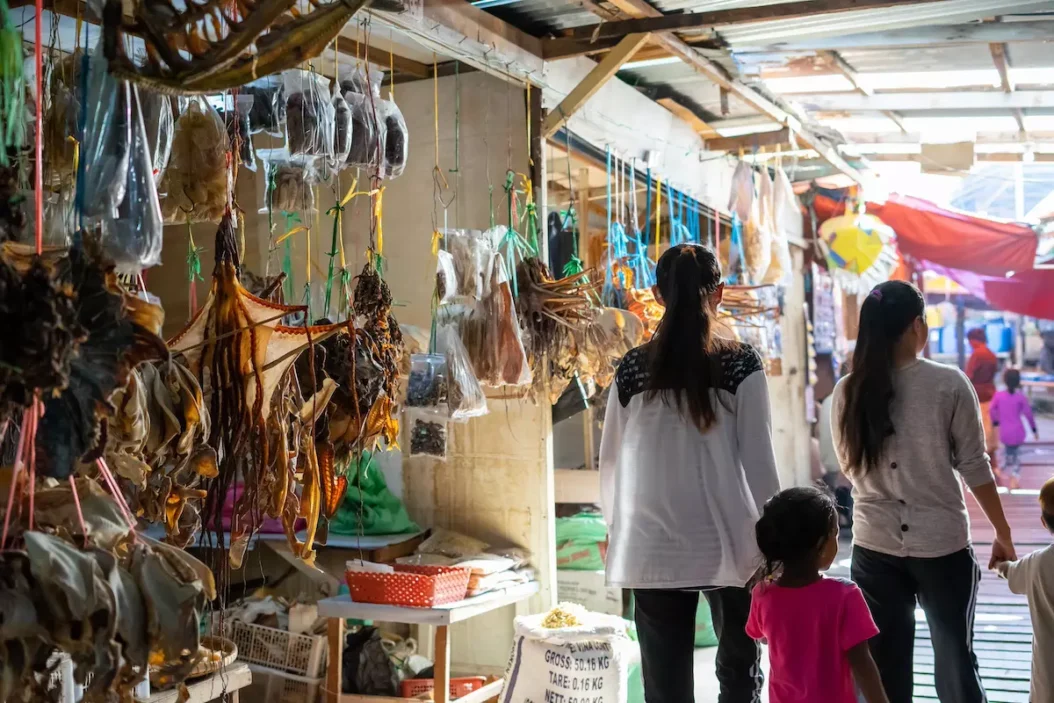I wrote a week ago how the coronavirus may have started in Wuhan and unevenly radiated to now 77 nations throughout the world. The virus almost certainly infected its first human victim by jumping the species barrier in a “wet market” — open-air shops that are mixing bowls of people, animals, blood and other bodily fluids. Experts believe the transmission occurred when a person consumed a stressed-out bat or pangolin incubating the virus.
The peculiar and destructive human appetite for wild animals, as we see in hindsight, triggered a worldwide epidemic. This morning, President Trump signed a bill providing $8.3 billion in emergency funding to combat the coronavirus outbreak, including funding for more testing kits to determine the prevalence of the infections so containment strategies can be more strategically implemented. Major employers in Washington state, which has had the most deaths and afflicted people in the U.S., are urging personnel to stay home. The map of the United States is sure to get more colorful as new cases are reported in the states.
It’s understandable that federal, state, and local governments are focusing on containment, with alarming news reporting, spooked citizens and public officials, and stock market indices heading dramatically downward.
The first case of COVID-19 transmission from an infected person to his dog has been confirmed in Hong Kong. The World Organization for Animal Health received the report earlier this month from the chief veterinarian from the Hong Kong Department of Agriculture, Fisheries and Conservation. You can read the report here.
In response to this news, the Animal Wellness Foundation (AWF), Animal Wellness Action (AWA), and our affiliates are urging pet owners living abroad not to panic and adhere to common-sense, science-based approaches. What we don’t want is people abandoning their animals, or government authorities engaging in extermination programs.
It would not be the first time that China and its citizens resorted to such severe animal-control strategies when zoonotic diseases, such as rabies, sparked public health concerns. Even the United States reacted with a kill-them-all approach after a type of avian influenza known as Virulent Newcastle Disease broke out in southern California in 2018; our own government has killed 1.2 million birds in southern California since the first case of it was discovered in an animal 20 months ago.
So far, we haven’t seen any evidence of an overreaction. Authorities ordered the infected dog quarantined after the owner was hospitalized with COVID-19. The test results for the dog indicated a “weak positive” for SARS-COV-2, but the dog has not exhibited any symptoms.
According to the World Health Organization and the Centers for Disease Control and Prevention, there is no evidence that companion animals can spread COVID-19. That’s the key takeaway in this case, and this fact should guide policymakers not to be rash or severe in dealing with pets.
“We now know that people can transmit the Coronavirus to their pets,” observed Jennifer Skiff, Director of International Programs for the AWF. “If you’re sick, you should protect your pets like you would any other family member. Keep your distance and be diligent in following sanitary recommendations.”
And here’s the basic idea: Pet owners should take precautions to protect their pets, but they absolutely should not relinquish their animals or deny them the usual standard of care.
“People should not fret about contracting the virus from our pets,” says Dr. Sarah LaMere, a veterinary virologist and a member of the National Veterinary Council of the AWF and AWA. “We face much greater risks of contracting the virus from people.”
Dr. LaMere added that pets contract the virus the same way that humans do — from contact with infected droplets from a person or infected surfaces. “If you or someone in your household is infected with COVID-19,” said Dr. LaMere, “it makes sense to isolate the pet from that person to an extent practicable. But the virus, even if it passes to a pet, is unlikely to make your pets sick and develop symptoms that will affect the animal’s quality of life.”
“I want to impress upon people that there isn’t any evidence right now that COVID-19 is going to be a concern in animals, even though a dog tested positive,” observed Dr. LaMere.
She recommends these tips for protecting the health of your animals:
- Keep yourself healthy. If animals contract COVID-19, it is much more likely they will have picked it up from us than from each other.
- Wash your hands with soap frequently before handling your pets, especially after being in public places with lots of people, like grocery stores, church, etc. Make sure you have contact with soap for at least 20 seconds. In vet school we were taught to sing the whole alphabet while washing our hands to estimate the time.
- Use hand sanitizer containing at least 60 percent ethanol when you are unable to access a sink for handwashing. It’s a good idea to carry sanitizer with you.
- Avoid letting your pets lick you on the nose or mouth. This is important for preventing transmission of multiple diseases to each other, and not just COVID-19.
- Keep your animals updated on their other vaccines. We don’t currently have vaccines for COVID-19 in any species, and so far, we don’t see evidence that the virus can make our animals sick. However, respiratory viruses cause many more problems when there are other pathogens present, so protect your dog from canine influenza, bordetella, etc.
In short, be responsible.
Wayne Pacelle, author of The Humane Economy: How Innovators and Enlightened Consumers Are Transforming the Lives of Animals, is president of The Center and founder of Animal Wellness Action.
